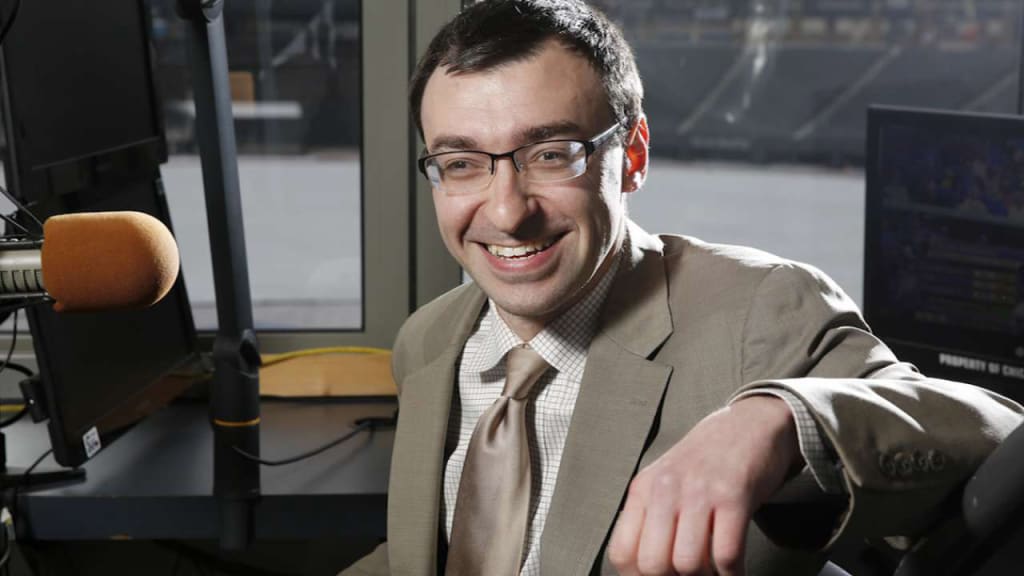
This is my second year with the White Sox, and every day I still give thanks for being able to call the games of the team I grew up with. It's interesting because I studied broadcast journalism at Syracuse. And it was journalism with a capital "J," as in the first rule is to be objective.
Everyone who goes to Syracuse with an eye toward a career in sports broadcasting comes in with this rabid fandom. It's mostly students from the East Coast. So it's either you're a huge Yankees fan, or a huge Mets fan. I was a White Sox fan. However, at some point at Syracuse, being a fan goes under the surface. It is pounded into you: "Be objective."
:: Chicago White Sox: In My Words ::
Now being objective isn't even part of my job anymore in announcing White Sox games. I'm calling the games for Sox fans. I'm objective in the sense that I know there are two teams out there. But everything goes through the prism of the White Sox.
You go to college, you grow up and then do adult things. In my situation, I got to return home and kind of get to be a kid again. When I was growing up, I absolutely adored the White Sox. That has come back to me in the booth. It's been really nice.
My preparation for doing a game starts with a constant search for information and data. I have to get details. If there's no detail, then anybody can do this job. Each game, I want to have something new about every guy.
I try to talk to the players as much as I can. You have to use your creative instinct in asking questions to find out something nobody knows about the players. It's important for the fans to get to know the players on a human level.
For instance, Tim Anderson told me the story of how he came to play baseball. He was a big basketball guy, and his friend had to convince him to go out for a high school baseball tryout. "You have to do this." Anderson then missed his tryout, and he had to have a friend convince the coach to give him another one. Imagine if that tryout didn't happen. He probably wouldn't be playing shortstop for the White Sox.
It's that extra bit of storytelling that makes the broadcast shine.
I scan many websites daily looking for interesting statistics and data to use in a telecast. During Spring Training, we talked about how of the top seven hitters in exit velocity last year, Avi Garcia was seventh on the list. Now there's more to it, but that number might be a reason why some people felt Avi could break out at some point.
Sabermetrics are interesting to me, but Steve (Stone) and I both have a radar for filling up a telecast with too many stats. That remains important in a world where nobody wants to be replaced by robots. If I just talked about numbers, then I did not do a good job learning about that player. If the data doesn't tell a story, then it probably won't make it into our show.
This is my second year with Steve, but I knew from our first dinner in December 2015 that working with him would be a pure joy. I love the fact that we can be two guys talking about baseball and sometimes take a shot at each other. We're a little bit like Norm and Cliff on "Cheers." Sometimes there's a one-liner nobody likes, and sometimes there's a one-liner that surprisingly lands.
We have had fun incorporating different elements in our broadcasts. Steve has a great memory, so we came up with a "Sticks & Stone" segment to quiz him about his career. "Sox Math" is about a hunt for information. Every game, we give people a chance to learn about the White Sox. We have our "Prize Shelf." The other day, we gave away two signed James Beckham cleats. Somebody sent us in a 1989 White Sox scorecard. I love the randomness of the whole thing.
I really give the White Sox a lot of credit. Every time anyone on the crew has an idea to improve the telecast, they say, "Go ahead and try it."
If we are having a good time and doing a broadcast in a unique way, then we are doing our jobs. That's our goal every day.